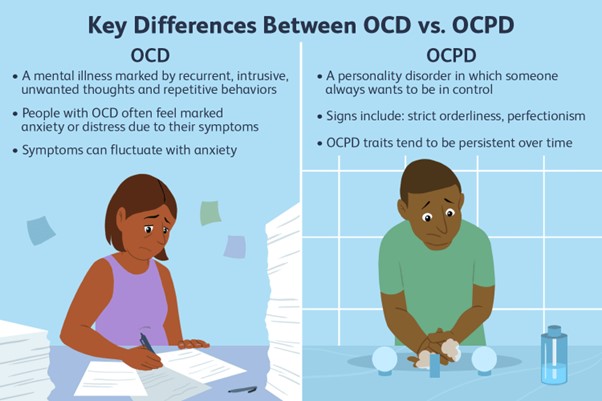A nurse is assessing a client who has obsessive-compulsive personality disorder. Which of the following findings should the nurse expect?
Goal-oriented
Provocative behaviour
Lack of empathy
Lability
The Correct Answer is A
Choice A reason:
Goal – oriented is the correct answer. Obsessive-compulsive personality disorder (OCPD) is a personality disorder characterized by a pattern of preoccupation with orderliness, perfectionism, and control. Individuals with OCPD tend to be highly organized, detail-oriented, and focused on achieving their goals. They often set strict standards for themselves and others and are driven by a strong need for perfection in all aspects of their lives.
Choice B reason
Provocative behaviour is not a characteristic commonly associated with obsessive-compulsive personality disorder (OCPD). In fact, individuals with OCPD tend to be more reserved, cautious, and serious in their interactions with others.
Choice C reason:
Lack of empathy While individuals with OCPD may struggle with interpersonal relationships due to their rigid standards and expectations, they typically do not lack empathy. They might find it challenging to understand and relate to emotions or perspectives that do not align with their own, but this is different from a complete lack of empathy, which is more commonly seen in certain other personality disorders
Choice D reason.
Lability refers to emotional instability or rapid and extreme shifts in emotions. This is not a typical feature of obsessive-compulsive personality disorder (OCPD). Individuals with OCPD tend to be emotionally restrained and might have difficulty expressing emotions, rather than experiencing emotional lability.

Nursing Test Bank
Naxlex Comprehensive Predictor Exams
Related Questions
Correct Answer is C
Explanation
The correct answer is C. Identifying the client's perception of the changes in her physical appearance is essential for developing a plan of care that addresses her psychosocial needs and promotes her self-esteem and body image. The client may experience grief, anger, depression, anxiety, or guilt after losing her breasts, which can affect her quality of life and recovery. The nurse should explore how the client feels about herself and her sexuality, and provide emotional support and empathy. The other actions are also important, but they are not as a priority as understanding how the client views herself.
Correct Answer is D
Explanation
The correct answer is D.
Social worker. The rationale is that a social worker can help the client access community resources and transportation services that can facilitate their attendance to follow-up appointments. The social worker can also assess and address any psychosocial barriers that may affect the client's adherence to treatment.
Whether you are a student looking to ace your exams or a practicing nurse seeking to enhance your expertise , our nursing education contents will empower you with the confidence and competence to make a difference in the lives of patients and become a respected leader in the healthcare field.
Visit Naxlex, invest in your future and unlock endless possibilities with our unparalleled nursing education contents today
Report Wrong Answer on the Current Question
Do you disagree with the answer? If yes, what is your expected answer? Explain.
Kindly be descriptive with the issue you are facing.
